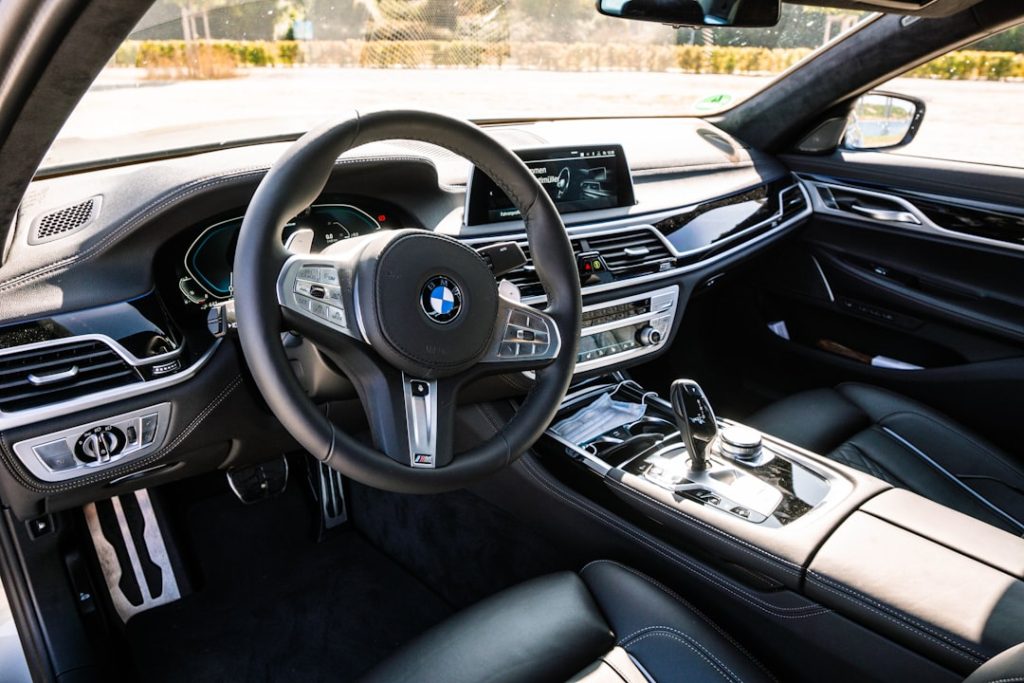Car detailing is a meticulous process aimed at restoring and enhancing the appearance of a vehicle, both inside and out. Unlike a standard car wash, which primarily focuses on removing surface dirt and grime, detailing involves a thorough cleaning, polishing, and protection of various surfaces. This process can include everything from washing and waxing the exterior to deep cleaning the interior upholstery, carpets, and even the engine bay.
The goal of car detailing is not only to improve the aesthetic appeal of the vehicle but also to preserve its value over time. The detailing process employs specialized tools, products, and techniques that are often not available in a typical car wash setting. For instance, detailers may use clay bars to remove embedded contaminants from the paint surface or high-quality waxes and sealants to provide long-lasting protection against environmental elements.
Additionally, detailing can involve the application of ceramic coatings, which offer superior durability and shine compared to traditional waxes. This level of care ensures that every nook and cranny of the vehicle is attended to, resulting in a showroom-quality finish.
Key Takeaways
- Car detailing is the process of thoroughly cleaning, restoring, and finishing a vehicle to produce a show-quality level of detail.
- Professional car detailing can help maintain the value of your vehicle, protect it from environmental damage, and improve its overall appearance.
- The process of car detailing involves cleaning and reconditioning both the interior and exterior of the vehicle, including paint correction, waxing, and interior shampooing.
- Different types of car detailing services include basic detailing, paint correction, ceramic coating, and interior detailing, each offering different levels of cleaning and protection.
- When choosing the right car detailing package, consider your budget, the specific needs of your vehicle, and the reputation and experience of the detailing service provider.
Benefits of Professional Car Detailing
Investing in professional car detailing offers numerous advantages that extend beyond mere aesthetics. One of the most significant benefits is the preservation of the vehicle’s value. Regular detailing can help maintain the car’s exterior and interior condition, which is crucial when it comes time to sell or trade in the vehicle.
A well-maintained car with a clean interior and exterior is likely to fetch a higher price than one that has been neglected. This is particularly important in a competitive market where buyers are often looking for vehicles that appear well-cared-for. Moreover, professional detailing can enhance the driving experience by creating a more pleasant environment inside the vehicle.
A clean interior free from dust, allergens, and unpleasant odors can significantly improve comfort for both the driver and passengers. Detailers often use high-quality cleaning products that not only clean but also sanitize surfaces, contributing to a healthier atmosphere within the car. Additionally, detailing can help protect against wear and tear; for example, applying protective coatings to leather seats can prevent cracking and fading over time.
The Process of Car Detailing

The car detailing process typically involves several key steps that ensure every aspect of the vehicle is thoroughly cleaned and protected. Initially, the exterior is washed using a two-bucket method to minimize scratches; one bucket contains soapy water while the other holds clean water for rinsing the wash mitt. After washing, the vehicle is dried using microfiber towels to prevent water spots.
Following this, detailers often use clay bars to remove contaminants such as tree sap, industrial fallout, and road grime that regular washing cannot eliminate. Once the exterior is clean, polishing may take place to remove minor scratches and swirl marks from the paint surface. This step is crucial for restoring the vehicle’s shine and preparing it for waxing or sealing.
The application of wax or sealant follows, providing a protective layer against UV rays, dirt, and other environmental factors. The wheels and tires are also cleaned and dressed during this phase to ensure they match the pristine condition of the rest of the vehicle. The interior detailing process involves vacuuming all surfaces, including carpets, seats, and crevices.
Upholstery may be shampooed or steam cleaned to remove stains and odors. Hard surfaces such as dashboards and door panels are wiped down with appropriate cleaners to remove dust and grime. Finally, detailers often apply protectants to leather or vinyl surfaces to maintain their appearance and prevent cracking.
Different Types of Car Detailing Services
| Service Type | Description | Price Range |
|---|---|---|
| Basic Wash | Exterior wash, tire cleaning, and interior vacuuming | 20 – 40 |
| Standard Detailing | Basic wash plus waxing and interior surface cleaning | 50 – 100 |
| Full Detailing | Standard detailing plus engine cleaning and leather conditioning | 100 – 200 |
| Paint Protection | Application of protective coating to prevent scratches and fading | 150 – 300 |
Car detailing services can vary widely based on customer needs and preferences. Basic packages typically include exterior washing, waxing, and interior vacuuming. However, more comprehensive services are available for those seeking an in-depth clean.
For instance, full detailing packages often encompass both interior and exterior services along with additional treatments such as engine bay cleaning or headlight restoration. Specialized services are also offered by many detailing providers. For example, paint correction services focus on removing deeper scratches and imperfections from the paint surface using advanced polishing techniques.
Ceramic coating applications have gained popularity due to their long-lasting protective qualities; these coatings bond with the paint at a molecular level, providing superior resistance against scratches and chemical etching. Interior detailing can also be tailored to specific needs; for instance, pet owners may require specialized cleaning services to remove pet hair and odors effectively. Additionally, some detailers offer mobile services that bring the detailing experience directly to the customer’s location, providing convenience for those with busy schedules.
Choosing the Right Car Detailing Package
Selecting an appropriate car detailing package requires careful consideration of several factors. First and foremost, it’s essential to assess the current condition of your vehicle. If your car has not been detailed in a long time or shows signs of significant wear—such as heavy staining on upholstery or noticeable scratches on the paint—opting for a comprehensive package may be beneficial.
Conversely, if your vehicle is relatively clean but could use some maintenance, a basic package might suffice. Another important aspect to consider is your budget. Detailing prices can vary significantly based on location, service complexity, and provider reputation.
It’s advisable to research local detailing services and compare their offerings to find a package that meets your needs without breaking the bank. Additionally, reading customer reviews can provide insight into the quality of service offered by different providers. Lastly, consider any specific needs you may have based on your lifestyle or vehicle usage.
For example, if you frequently transport children or pets, you might want to prioritize interior cleaning services that focus on stain removal and odor elimination. If you live in an area with harsh weather conditions, investing in protective coatings could be worthwhile for maintaining your vehicle’s exterior.
Tips for Maintaining Your Car’s Cleanliness After Detailing

Once your vehicle has undergone professional detailing, maintaining its cleanliness becomes essential for prolonging that fresh look. One effective strategy is to establish a regular cleaning routine that includes both interior and exterior maintenance. For instance, washing your car every two weeks can help prevent dirt buildup while also protecting the paint from contaminants that can cause damage over time.
In addition to regular washes, consider using protective products designed for specific surfaces within your vehicle. For example, applying a fabric protector on upholstery can help repel stains while using a leather conditioner on seats can prevent cracking and fading due to sun exposure. Keeping a set of microfiber cloths in your car allows for quick cleanups of spills or messes before they become more challenging to address.
Another practical tip is to avoid eating or drinking in your vehicle whenever possible. This simple habit can significantly reduce the likelihood of spills and crumbs accumulating inside your car. If you must eat on the go, consider using spill-proof containers or keeping trash bags handy to manage waste effectively.
Finding a Reliable Car Detailing Service Provider
Finding a trustworthy car detailing service provider is crucial for ensuring quality results. Start by seeking recommendations from friends or family who have had positive experiences with local detailers. Online reviews can also provide valuable insights into customer satisfaction levels; platforms like Google Reviews or Yelp often feature detailed feedback from previous clients.
When evaluating potential detailers, inquire about their experience and qualifications in the industry. A reputable provider should be knowledgeable about various detailing techniques and products used in their services. Additionally, ask about their equipment; professional-grade tools often yield better results than consumer-grade alternatives.
It’s also wise to request quotes from multiple providers before making a decision. This not only helps you gauge pricing but also allows you to compare what each package includes. A reliable detailer will be transparent about their services and willing to answer any questions you may have regarding their processes or products used.
Frequently Asked Questions about Car Detailing
Many individuals have questions regarding car detailing that can help clarify its importance and processes. One common inquiry is how often one should have their vehicle detailed. While it largely depends on personal usage and environmental factors, most experts recommend detailing every six months to maintain optimal condition.
Another frequently asked question pertains to whether detailing can remove scratches from a vehicle’s paintwork. While minor scratches can often be polished out during the detailing process through techniques like paint correction, deeper scratches may require more extensive repair work beyond what detailing alone can achieve. People also wonder about the cost associated with car detailing services.
Prices can vary widely based on factors such as location, service complexity, and provider reputation; basic packages may start around $50-$100 while comprehensive detailing could range from $150-$300 or more depending on additional services included. Understanding these aspects of car detailing can empower vehicle owners to make informed decisions regarding their car care routines while ensuring their vehicles remain in excellent condition for years to come.



